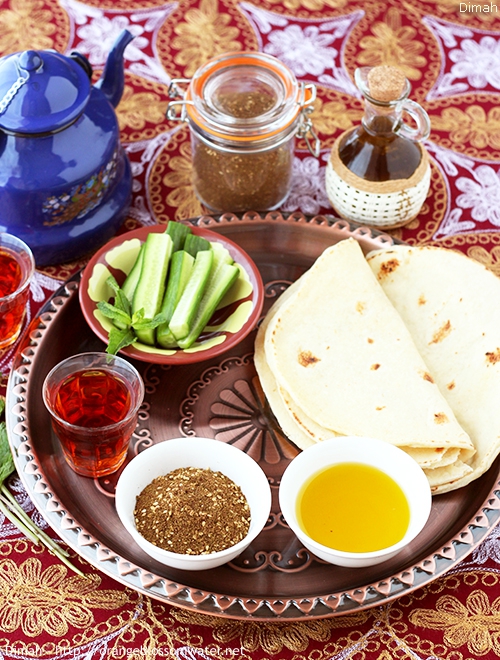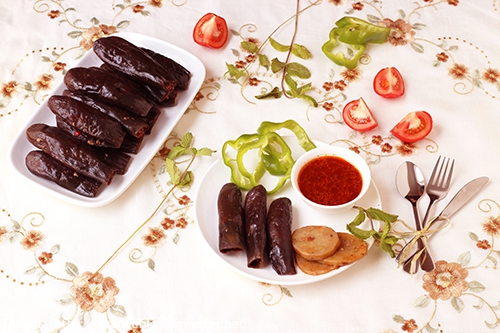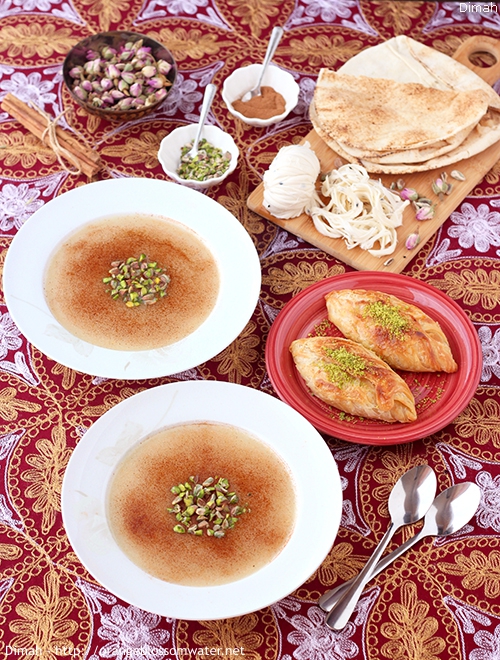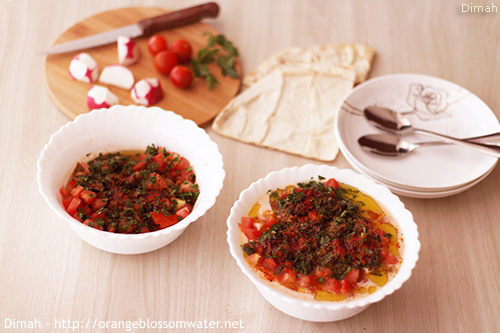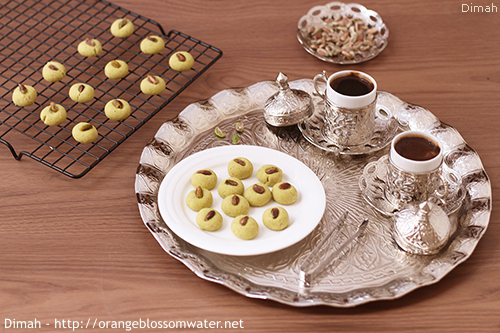
The Syrian pistachio tree is known since Assyrians age. The origin of this tree goes back to Al-Batim Tree in the Mediterranean sea basin and Middle East regions; however, the original place of the Syrian pistachio is Syria (Ein Al-Tina). Many references refer to this kind as (Pistachio – Pistacia vera L.) known since 3500 years BC in West Asia and “Great Syria” countries. The Aleppo pistachio is attributed to Aleppo city which is the traditional area for planting this tree since long ages; therefore, whenever Aleppo city is mentioned, we have to mention the Aleppo pistachio (Fustuq Halabi). In Aleppo, the pistachio blossomed producing a dozen varieties, a unique diversity. These varieties differ both in the color and the size of the fruit on the tree. As the taste and scent, the soil and position of the trees provide the variations. Pistachio is important ingredient in the traditional cuisine of Aleppo.
Ghraibeh is a shortbread type biscuit, and today’s recipe is Ghraibeh Bel-Fustuq Al-Halabi (Pistachio Ghraibeh) which is similar to original Ghraibeh but made with pistachio.
Let’s make Ghraibeh Bel-Fustuq Al-Halabi:
